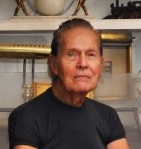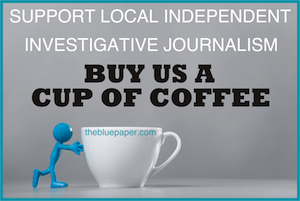Kirby Congdon, On Poetry

by Kirby Congdon [Key West Poet Laureate Emeritus] …
My dictionary has a dozen entries to facilitate our understanding of the word “poetry,” a term we all use so casually as we overlook the depths of its meaning. We feel familiar with it because it’s been with us since we first heard poetry in the light use of it in nursery rhymes. That format reminds us that nursery rhymes were originally often sly documents of history with a wink toward censorship. But we don’t need to rely on that kind of use now that we have our sophisticated forms of immediate communication along with our tradition of free speech in democracies.
There is no surprise if a letter from a friend quotes a poet or interjects a spontaneous rhyme of his own as a verse or as a “poesy” on the level of humor or in a more meditative mood. This country is, of course, influenced by so many languages and personal histories that we rely on for the careful expression of them. That care encourages a facility for words. We run across prose that succinctly identifies a name or event after a particular reference has moved over into poetry.
Even our money illustrates this transformation. The reader will smile when I point at the phrase, “In God we trust.” This rather crass connection of the holy empyrean with the market place almost defines civilization. Perhaps aspiration and ambition themselves are based on our imagination when it emphasizes the poetic resolution of our dreams and that sense of dedication that underlies any positive or voluntary decision. Likewise whatever is negative or involuntary reveals its lack of poetry.
We call second-rate work verse. Or it’s a “ditty,” a word that comes from the Latin, dictatum,” —a thing dictated. My dictionary lists the term ditty bag in which we carry any number of miscellaneous things that usually don’t belong together, very much like a poem that does not flow consistently. A poem is not dictated, manufactured or, as we say, made up. Nor is it a lyric forced to fit the music connected with it. It is not a memo either, as in “Thirty days hath September.” When a poet laureate is appointed by a monarch to celebrate an official occasion he will have a hard time getting a poem out of it because poems are not made to order. A poem is inspired through an unexpected idea or feeling that comes to the poet involuntarily. It is then that the poet listens to what his poem is trying to tell him. He finds out what the poem is trying to do. The poet learns from the poem something he did not know before, like a new insight or perspective. His involvement is like an addiction—he wants to get over it or through it but he doesn’t want to give it up until he has overcome the poem by, simply, finishing it. The finishing may take a long time. He very well may need to put the poem-in-progress away so that he can come back to it as a stranger and correct the flaws that show up when one’s mind and eye are fresh again.
Deciding to write a poem on a particular subject, as in a contest, or in a writing class, almost guarantees the final product will sound artificial, its mood forced, its spontaneity gone and its purpose merely another repetition of some palliative that reveals nothing new. This is why a poem, when it’s underestimated, has a bad name. This is why it takes a good part of a lifetime to write one.




Poetry is a word we use to define a broad spectrum of written expression…From greeting cards to Rumi. It can be made to order at “Poem Depot” or channeled directly from the gods. Kirby has been writing great poetry for a long time and I always enjoy his musings and perspective. Thanks!